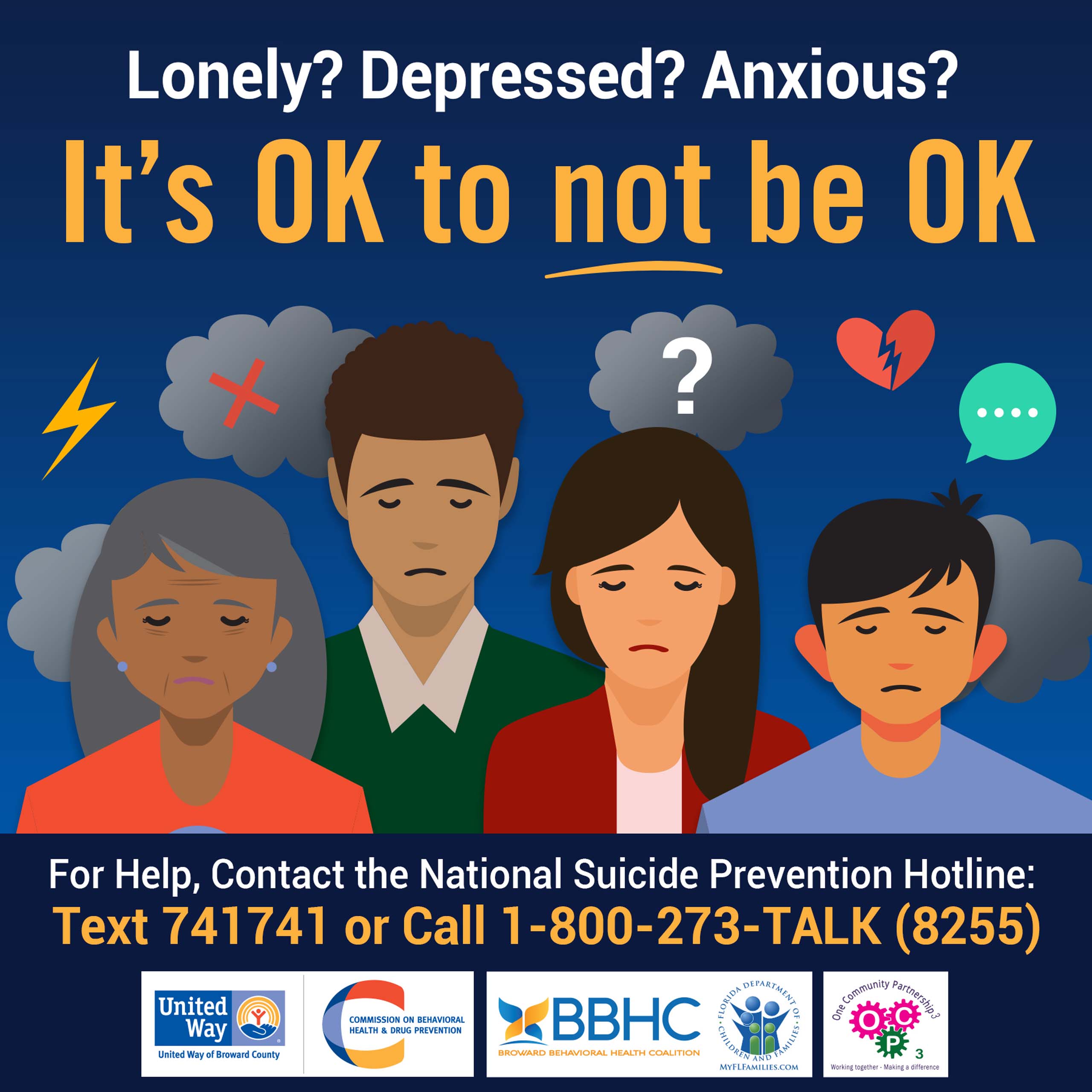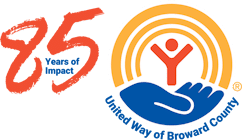United Way of Broward County welcomed Rick Wolfer as our new Suicide Prevention Coordinator. Rick hit the ground running, beginning in one of his busiest months, September, which is Suicide Prevention Month. He brings over 20 years of experience with roles in education, sports, and behavioral health in Broward County.
We caught up with Rick to ask him a few questions about his new role, early warning signs of suicide, and resources available for families and those in need of support.
Tell us about your role at United Way of Broward County?
My role will primarily focus on five major areas.
- Leading five subcommittees for suicide prevention in Broward County.
- Overseeing the Deep Dive Program, which consists of an examination of the data collected.
- Spearheading United Way of Broward County’s Zero Suicide Initiative with Broward Suicide Coalition. The initiative’s goal is to bring the number of suicides in Broward County down to ZERO.
- Assisting in getting the LOSS (Local Outreach of Suicide Survivors) in motion, which supports families and friends who have lost someone to suicide.
- Attending Community Impact group trainings and events throughout the year related to suicide prevention and mental wellness.
What are the top warning signs of suicide?
- Talking of wanting to die or kill oneself.
- Looking for a way to kill oneself.
- Talking about feeling hopeless or having no reason to live.
- Feeling “trapped” or being in a lot of emotional pain.
- Commenting that they are a burden to others.
- Drastically increases their use of drugs or alcohol.
- Acting in reckless behavior (i.e., driving fast, impulsive behavior).
- Feeling of social withdrawal or isolation.
- Feeling angry all of the time or has revenge-seeking behavior.
- Undergoing a dramatic increase or decrease in their sleeping habits (i.e., insomnia or sleeping all day).
- Demonstrating extreme mood swings, including lots of highs and lows.
How can a family friend or loved one provide support?
We all have or know someone dealing with mental health issues. Rick spoke about a few ways we can support those in need.
- What if a loved one has hurt themselves?
- It might seem obvious, but calling 911 if extreme danger or self-harm is caused is vital.
- What if a loved one is thinking about killing themselves?
- Rick suggests that if a loved one is thinking about ending their life, you should question them. He emphasizes that it’s essential to be an active listener and not judge the individual for their thoughts.
- What support can someone provide in the immediate sense?
- Family and loved ones must know how to support those struggling with suicidal thoughts. Providing physical support such as staying with them or taking them out of the house could mean the world to that person.
- How can loved ones reduce the risk of suicide in their home?
- Family and loved ones can start by removing sharp objects and firearms from their homes. The risk minimizes when removing dangerous objects from the environment.
Are there any resources you would like to share with the community?
There are several resources available to support loved ones and those suffering from thoughts of suicide.
- The National Suicide Prevention Lifeline | 1-800- 273-TALK (8255)
- This 24/7 hotline is available for anyone in distress who wants to talk with free online support.
- The National Suicide Prevention Lifeline also offers a texting service (741-741).
- 211 Broward
- By calling 211, individuals can access 24-hour telephone counseling, emotional support, suicide prevention and intervention, and links to community resources.
- Behavioral Health Treatment Service Locator
- The Behavioral Health Treatment Service Locator is a free, confidential, and anonymous source of information for persons seeking treatment facilities in the United States or U.S. Territories for substance use and addiction, and mental health problems.
It’s OK to Not Be OK  Unfortunately, the most common method of suicide in Broward County is from self-inflicted gunshot wounds. Fort Lauderdale alone carries the highest amount of suicide cases in Broward County.
Unfortunately, the most common method of suicide in Broward County is from self-inflicted gunshot wounds. Fort Lauderdale alone carries the highest amount of suicide cases in Broward County.
Despite the statistics, suicide is preventable. Following Rick’s advice and seeking help for yourself or loved ones can create all the difference in the world. United, we’ve got this!
Adapting to this “New Normal” can be tough. For someone experiencing stress, loneliness, or anxiety, resources exist to help get through these challenging times. If you are concerned that someone you know is considering suicide, text 741-741 for help.
Further Resources
United Way of Broward County’s Commission on Behavioral Health & Drug Prevention developed the Prevention Resource Center as an initiative to create a centralized information/resources to prevent substance use and promote behavioral health by working with local stakeholders and partners to mobilize and strengthen prevention related work.
Click here to access the Prevention Resource Center Tool Kit and other services.

